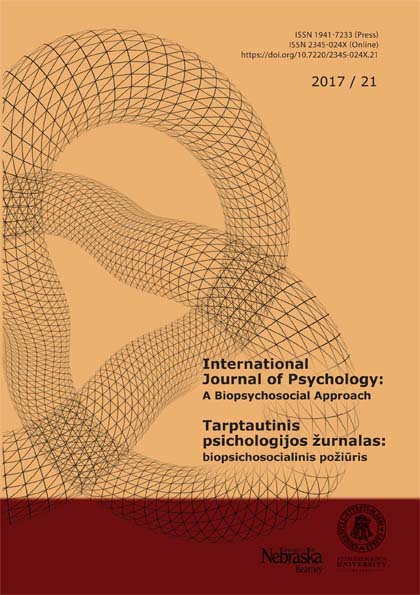Socialinio pasitikėjimo svarba Lietuvoje bei emigracijoje gyvenančių žmonių gerovei
The Importance of Social Trust for the Prediction of Well-Being of Lithuanians and Lithuanian Emigrants
Author(s): Rasa Markšaitytė, Kristina Žardeckaitė-Matulaitienė, Laura Šeibokaitė, Auksė EndriulaitienėSubject(s): Politics / Political Sciences, Psychology, Social Philosophy
Published by: Vytauto Didžiojo Universitetas
Keywords: Trust in people; Trust in institutions; Emotional well-being; Social well-being; Psychological well-being; Emigrants;
Summary/Abstract: Objective. Recent studies have confirmed that social trust is one of the most important correlates of well-being in different populations and contexts. However, there is a lack of research on this relationship in the context of migration. Therefore, this study aimed to evaluate the importance of several social trust indicators for well-being of Lithuanians and Lithuanian emigrants and to compare this relationship in both groups taking into account their social and demographic characteristics. Methods. One thousand two hundred and nine Lithuanians (52.2 % Lithuanian emigrants; 19.9 % males) participated in the cross-sectional online survey on a voluntary basis. Emotional, social, and psychological well-being was measured using the short form of Mental Health Continuum Questionnaire (MHC-SF, Keyes, 2009). The sense of general trust in people and social trust in different governmental and public institutions was measured using 12 separate questions based on the European Social Survey. Results. Lithuanian emigrants reported higher trust in institutions and higher emotional, social, and psychological well-being; meanwhile, non-migrants had higher general trust in people compared to emigrants. Higher trust in various institutions was an important factor in the prediction of higher emotional, social, and psychological well-being of Lithuanian emigrants and of higher psychological well-being of Lithuanians who stayed in their home country. Emotional and social well-being of non-migrants was explained by higher general trust in people, higher trust in institutions and higher levels of family income. Social trust variables showed the highest predictive value in all regression models. Conclusion. Thus, social trust (especially trust in institutions) is an important predictor of well-being in Lithuanians and Lithuanian emigrants.
Journal: Tarptautinis psichologijos žurnalas: biopsichosocialinis požiūris
- Issue Year: 2017
- Issue No: 21
- Page Range: 71-92
- Page Count: 22
- Language: English

